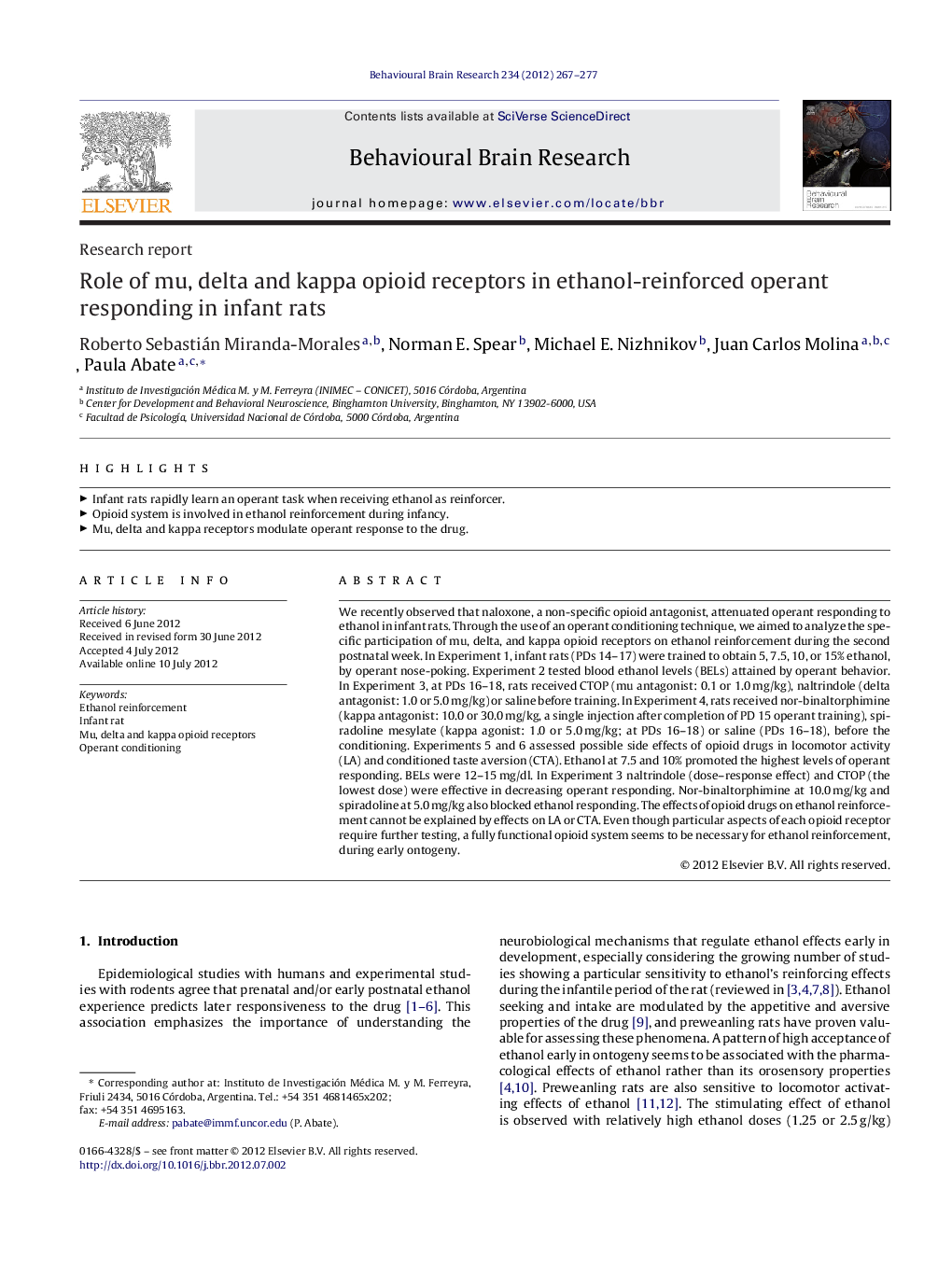| کد مقاله | کد نشریه | سال انتشار | مقاله انگلیسی | نسخه تمام متن |
|---|---|---|---|---|
| 4312953 | 1289978 | 2012 | 11 صفحه PDF | دانلود رایگان |

We recently observed that naloxone, a non-specific opioid antagonist, attenuated operant responding to ethanol in infant rats. Through the use of an operant conditioning technique, we aimed to analyze the specific participation of mu, delta, and kappa opioid receptors on ethanol reinforcement during the second postnatal week. In Experiment 1, infant rats (PDs 14–17) were trained to obtain 5, 7.5, 10, or 15% ethanol, by operant nose-poking. Experiment 2 tested blood ethanol levels (BELs) attained by operant behavior. In Experiment 3, at PDs 16–18, rats received CTOP (mu antagonist: 0.1 or 1.0 mg/kg), naltrindole (delta antagonist: 1.0 or 5.0 mg/kg) or saline before training. In Experiment 4, rats received nor-binaltorphimine (kappa antagonist: 10.0 or 30.0 mg/kg, a single injection after completion of PD 15 operant training), spiradoline mesylate (kappa agonist: 1.0 or 5.0 mg/kg; at PDs 16–18) or saline (PDs 16–18), before the conditioning. Experiments 5 and 6 assessed possible side effects of opioid drugs in locomotor activity (LA) and conditioned taste aversion (CTA). Ethanol at 7.5 and 10% promoted the highest levels of operant responding. BELs were 12–15 mg/dl. In Experiment 3 naltrindole (dose–response effect) and CTOP (the lowest dose) were effective in decreasing operant responding. Nor-binaltorphimine at 10.0 mg/kg and spiradoline at 5.0 mg/kg also blocked ethanol responding. The effects of opioid drugs on ethanol reinforcement cannot be explained by effects on LA or CTA. Even though particular aspects of each opioid receptor require further testing, a fully functional opioid system seems to be necessary for ethanol reinforcement, during early ontogeny.
► Infant rats rapidly learn an operant task when receiving ethanol as reinforcer.
► Opioid system is involved in ethanol reinforcement during infancy.
► Mu, delta and kappa receptors modulate operant response to the drug.
Journal: Behavioural Brain Research - Volume 234, Issue 2, 1 October 2012, Pages 267–277